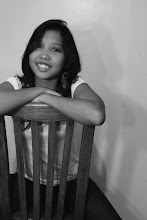Stand and Make a Difference
by Miguel Ricardo Leung
In biochemistry, a catalyst is any substance that makes an essential chemical reaction faster and therefore more efficient. Relating this to human society, a “catalyst” would be the person who can stand up and take the role of a leader, speeding up and improving the efficiency of that which every man must do – turning his dreams into reality.
I myself, an incoming third year student in the Special Science Program of the Baguio City National High School and an active student leader, jumped at the chance of attending this Leadership Training Seminar as soon as I was informed, though I had never heard of PSYSC before. For me, it was about taking a leap of faith – joining an unfamiliar activity, meeting a group of total strangers, and ultimately, redefining myself as a leader.
As soon as the first topic, “Ang Pisoysi,” was explained, I immediately knew that coming here would be worthwhile. The lecture on PSYSC as an organization, as a social gathering, and as a youth activity, opened my eyes to the sheer magnificence of science clubbing. But what truly made me think was how PSYSC was described as a friendship circle. That the 26 founders of PSYSC could start a bond with now over a hundred thousand people proves that friendships truly grow stronger when they are put to the test. I believe that PSYSC has grown from a small “band of brothers” into one huge happy family.
The second topic, Organizational Behavior, elaborated on the hierarchal characteristics of most clubs, with emphasis of that of the PSYSC. The lecture led me to the realization that no single person holding any single level or position in an organization can function without the people above and below it.
For instance, the biological hierarchy of multi-cellular organisms, which is one of the foundations of modern biology, considers the cell as the basic unit of the living system. Many cells performing similar or identical functions form tissues, which form organs, which form organ systems which build an organism and so on and so forth. An ecosystem cannot exist without the overall biosphere, nor can it ever exist without a single cell. The same holds true for organizations. A president or chairperson cannot function without his or her adviser, nor can they achieve anything without their members.
Leadership, the third topic, was perhaps the most significant. We were taught the various definitions and aspects of a leader. Leadership, for me, is having the characteristics to follow and reach the standards of stereotypical “good leadership” but having the guts to tell others, and yourself, when you are wrong. I shall now live as a leader who has the courage to do what I can, the serenity to accept what I cannot and the wisdom to tell them apart.
The fourth and final topic of the day was about PSYSC committees. Learning about and actually being immersed in their activities made me appreciate all the hard work, dedication, passion and pure love that all the staff members pour out into the activities. I admire them greatly and I believe that they are all true exemplars of leadership.
As the curtain of darkness blanketed the sky, we were given the privilege of watching, “Freedom Writers.” It is a movie about a school teacher who gives up nearly everything just to give her students the chance to be great and to give them the power to believe in more than just fate and luck. I think Ms. Erin Gruwell, the school teacher in the movie, epitomizes what it means to be a leader. She understood that teaching and leading are synonymous, and shed torrents of tears just to get her students – her followers – to where they have not been.
In the end, that’s what leadership is all about. It means believing in your ability to make others believe in their capacity to do the things most people deem impossible. It’s about collectively and collaboratively daring to make our dreams a fact.
Miguel Ricardo Leung
Baguio City National High School, CAR
LTS 2010 - Camp Tagaytay






